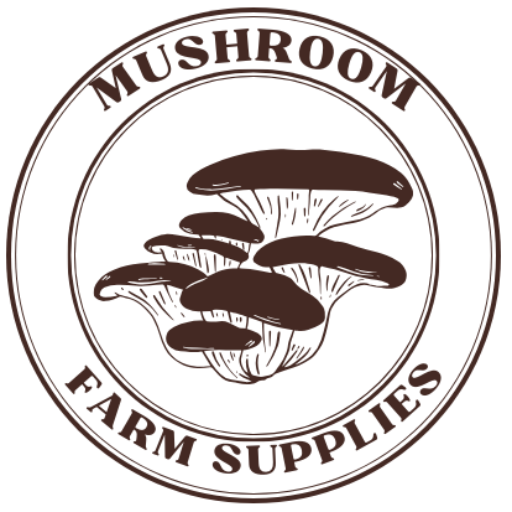Chaga (Inonotus Obliquus)
In the world of natural remedies and holistic health, few substances have captured the imagination quite like Chaga. This enigmatic fungus, scientifically known as Inonotus obliquus, has been a staple in traditional medicine for centuries. With its intriguing appearance, history, and alleged health benefits, Chaga has piqued the interest of health enthusiasts and researchers alike. In this 1000-word blog post, we’ll delve into the world of Chaga, exploring its origins, potential health benefits, and how to incorporate it into your daily routine.
The Origins of Chaga
Chaga has a compelling origin story that adds to its mystique. It thrives in the coldest regions of the Northern Hemisphere, with a particular affinity for birch trees. In fact, Chaga is often called “the birch mushroom” because of its close association with this tree. This fungus grows as a black, charred-looking mass on the outside of birch trees, giving it an otherworldly appearance that has earned it nicknames like “black gold” and “the diamond of the forest.”
Chaga has a rich history in traditional medicine, primarily among indigenous communities in Siberia, Northern Europe, and Asia. These communities have harnessed the power of Chaga for centuries, believing it to possess a wide range of healing properties.
The Science of Chaga
Modern research has begun to unravel the mysteries surrounding Chaga, shedding light on the bioactive compounds responsible for its potential health benefits. The most notable of these compounds are beta-glucans, which are known for their immune-boosting properties. Chaga also contains a spectrum of other bioactive compounds, including triterpenoids, melanin, and polyphenols, which contribute to its antioxidant, anti-inflammatory, and antiviral qualities.
Potential Health Benefits of Chaga
- Immune Support: Chaga’s high concentration of beta-glucans is believed to stimulate the immune system, helping the body fight off infections and illnesses. Regular consumption of Chaga tea or supplements may contribute to a stronger immune response.
- Antioxidant Powerhouse: Chaga is loaded with antioxidants, which combat free radicals in the body and protect cells from oxidative stress. This can help prevent chronic diseases and support overall well-being.
- Anti-Inflammatory Effects: Chronic inflammation is at the root of many health problems, including arthritis and heart disease. Chaga’s anti-inflammatory properties may help reduce inflammation and alleviate related symptoms.
- Potential Cancer Prevention: Some studies suggest that Chaga may have anti-cancer properties, with preliminary research pointing to its ability to inhibit the growth of cancer cells. However, more research is needed in this area.
- Liver Health: Chaga may support liver health by aiding in detoxification and promoting the regeneration of liver cells. This makes it a potential ally for individuals with liver conditions or those seeking to cleanse their bodies.
- Antiviral Properties: Chaga’s antiviral properties may help combat various viral infections. While it’s not a substitute for vaccines or prescribed antiviral medications, it can be part of a holistic approach to viral health.
How to Incorporate Chaga into Your Daily Routine
Now that you’re aware of Chaga’s potential health benefits, you might be wondering how to incorporate it into your daily routine. There are several convenient options for adding Chaga to your life:
- Chaga Tea: Brewing Chaga tea is one of the most popular ways to enjoy its benefits. To make Chaga tea, you’ll need Chaga chunks or powder, hot water, and a little time. Simply steep the Chaga in hot water for an extended period, allowing its bioactive compounds to infuse the liquid. The resulting tea has a mild, earthy flavor that many people find enjoyable.
- Chaga Tinctures: Chaga tinctures are concentrated liquid extracts of Chaga that can be easily added to beverages or taken sublingually. These are a convenient option for those on the go.
- Chaga Capsules or Supplements: If you’re not a fan of the taste of Chaga or find it challenging to prepare, Chaga capsules or supplements are a simple solution. You can find these in health food stores or online retailers.
- Chaga Coffee: Chaga coffee is a unique blend that combines the stimulating effects of coffee with the potential health benefits of Chaga. It offers an earthy, robust flavor that coffee lovers appreciate.
- Chaga in Recipes: You can get creative in the kitchen by adding Chaga powder or chunks to various recipes. It can be included in smoothies, soups, stews, and even baked goods. Experiment with different culinary applications to find what suits your taste.
A Note of Caution
While Chaga offers numerous potential health benefits, it’s essential to exercise caution and consult with a healthcare professional before incorporating it into your routine, especially if you have underlying health conditions or are taking medications. Although Chaga is generally considered safe, it can interact with certain drugs or have adverse effects in high doses.
Chaga Mushroom
Chaga, the mysterious fungus of health and healing, holds a special place in the world of natural remedies. With its intriguing origins, rich history in traditional medicine, and growing body of scientific research, Chaga continues to capture the imagination of health enthusiasts. While the potential health benefits of Chaga are enticing, remember that it’s not a magical cure-all. Instead, consider it as a part of a holistic approach to wellness, alongside a balanced diet, regular exercise, and other healthy lifestyle choices. Whether you choose to brew Chaga tea, take supplements, or explore other forms of consumption, Chaga’s unique properties make it a fascinating addition to your health and wellness journey.
